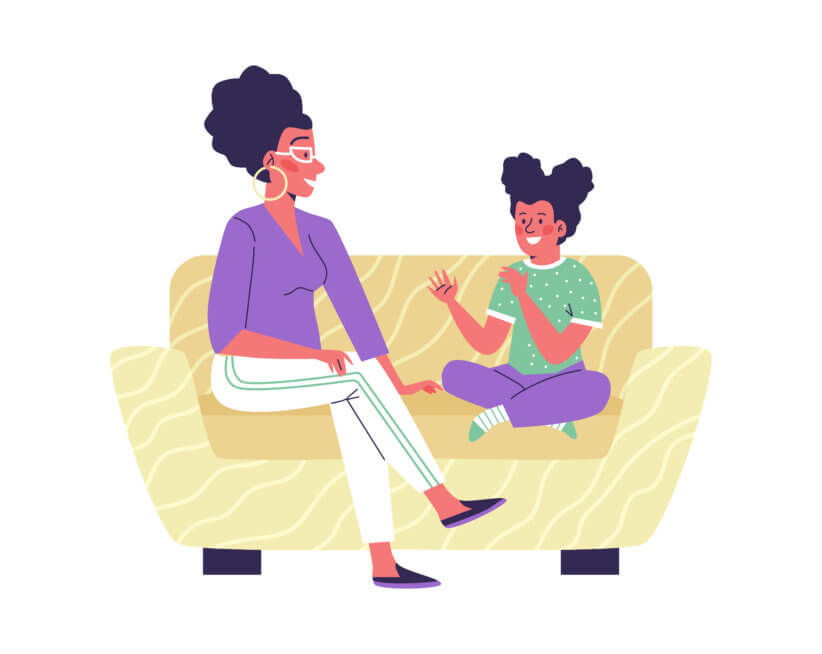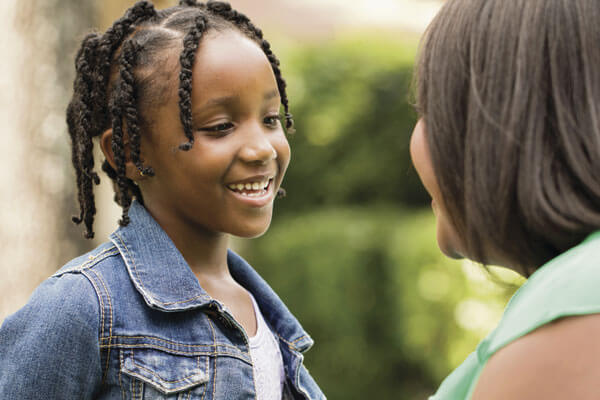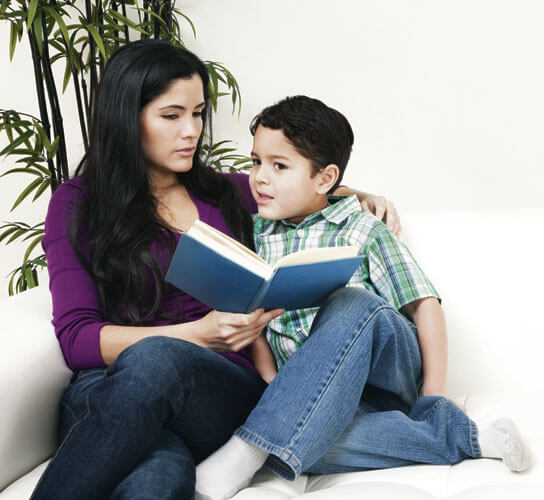
How to Talk to Kids about Puberty: Expert Shares Advice
Many parents tend to dread having ‘the talk’, yup we’re talking about the puberty convo with their kids. Some might feel awkward having these types of conversations and others might be looking for the right resources to use to guide the talk. We sat down with Samantha Huggins, Facilitator + Educator + Perinatal Health Supporter, about how to talk to kids about puberty and some resources and advice parents can use!
Why would you say it’s important to have a conversation about puberty with your kids?
Plainly, if you or someone you trust doesn’t have a conversation (or many!) with your kids about their bodies and other bodies too, someone else will. Seriously though. Kids have access to all kinds of information these days, much of which we have no control over.
A great way to insure a strong foundation in body literacy and self respect is to start the conversations ourselves and create space for our kids to come back with questions as they build on the concepts we introduce.
Ideally, what our kids learn about their bodies and their changes will be honest, empowering information that is delivered to them at a pace and on a level that they will be able to absorb.
When we equip our children with an understanding about their bodies and the bodies around them, it creates safety, and understanding as well as builds confidence and community among kids and within families.
Having a talk about puberty can feel as uncomfortable for parents as it can for kids. How should parents prepare to have these kinds of talks?
If your kids are really young, you can start by simply answering questions when they come up. Our toddlers have curious little minds and ask all sorts of questions about bodies. If your kids are in this age category, consider keeping an open door (or semi-open door) policy and answer questions as honestly as you can when they come up.
I also encourage families to use whatever language feels appropriate around body parts and to also ensure that anatomical names are communicated too. The terms “vulva” and “pubic hair” are only weirder than “elbow” and “calf” because we let it be!
What is the time frame for having this conversation? Does it vary depending on gender?
I encourage us to think about conversations about bodies like it’s ongoing and not a box checked. We are all constantly changing physically and mentally. Continuing to check in over time rather than a one and done convo might be the path of least resistance for us all. Again, the more we normalize change the more normal it becomes.
Here is an example of a short conversation: “ I think it’s time to change up your face soap. Want to go shopping/try mine/ etc. Just like growing taller, you will notice that your skin becomes a little more oily in spots. It’s super normal. Here is my experience with it….”
The timing of these conversations are not gender specific, rather they are personality specific. I have taught sex ed classes in rooms where kids are really ready to talk about it and are sitting right next to others who really aren’t. Same age, same anatomy. Different person, different timeline.
For parents that are still nervous about having this talk, what are some tips or key points that are important to include?
Take a deep breath. You are doing GREAT! As mentioned above, this doesn’t have to be a one and done conversation that connects body changes directly to sex on the first drop in. It can start with a question or two on your end and then maybe a little convo blooms.
If not, you can let them know that you have bought these great books and that you are going to leave them in their room/space. Or show them where you will be tucking them into the shelf so they know just where to find it.
Remember, you fully survived this time of your life and you have a lot of experience that you can contribute to the conversation.
- Bringing a book is always handy.
- You get the party started and then let your kids lead the conversation as much as you can.
- Don’t try to give info that they aren’t ready for. If your kid is starting to squirm, they might not actually have a question about that topic yet. You can pause on that topic and bring it back up down the road.
- It’s ok if the conversation doesn’t go perfectly. It won’t always, even in the most open door families.
Are there any resources you would recommend to help steer the conversation?
Whether our kids are little or are days away from cracking voices and pimples , there are many wonderful resources out there for parents who are preparing to talk about puberty.
You can start with some books that are age appropriate for your kid, and are representative of their bodies and other bodies as well. I cannot stress enough the importance of understanding everyone’s mechanics!! A couple of my favorite books for the tween set (8-12) are Celebrate Your Body (and its changes too!), by Sonya Renee Taylor and Puberty is Gross But Also Really Awesome, by Gina Loveless
And I love the resource guide on the website Sex Postitive Families is outstanding. You can put in filters by subject and age which lands you with a great and safe list of books and other resources for the age group you are trying to appeal to!
Do you have any additional suggestions or tips you would like to share?
As a facilitator, educator, doula, and a mom, I have learned a lot about having hard conversations. Using inclusive language like “we, our and us” rather than “I”, “me”and “you” creates connectivity, reduces stress and builds trust.
Speak from your heart. Say the hard things. Listen with both ears. Release yourself from the myth of perfection. We aren’t. Period. And we do not have to be. In fact, it will be better for everyone if we show up as we are (and a little messy) then to freeze from fear of getting it wrong and do nothing.
You’ve got this!
Psst… Check out How to Talk to Kids about The War in Ukraine (and Other Difficult Topics)












